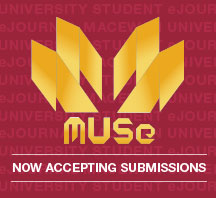Rethinking Narcissism in Sports: Advantageous or Detrimental to a Team’s Success?
DOI:
https://doi.org/10.31542/muse.v6i1.2241Abstract
Drawing on literature from personality and social psychology, the role of narcissism continues to be one of the most controversial constructs in sport. Reviewing a broad array of empirical research, this paper aimed at unravelling the effects of narcissism in various sporting elements: the players, the coaches, and the fans. Exploring both the benefits and drawbacks of narcissism, research reveals that narcissism can be valued as either advantageous or detrimental, depending on the component of the game. Reflecting upon the players aspect, narcissistic athletes might be best suited for individual sports as they provide the greatest opportunity for self-enhancement. Simultaneously, while narcissistic players often create major problems for a team, teams must not steer clear of all narcissistic athletes as they seem to be the most dependable performers during “big” games. Shifting towards coaches, research finds that those who exhibit moderate levels of narcissism, maximize leadership effectiveness such as communicating goals successfully with others. Yet, while these ideal levels may contribute to team success, research continues to find that narcissistic coaches severely impact team well-being as they are unable to put the needs of the team above theirs. Finally, despite the aggressiveness expressed by highly identified fans, the benefits of collective narcissism certainly prevail as their powerful presence leads their team to more successful outcomes.
References
Downloads
Published
Issue
Section
License
Copyright (c) 2022 Samantha Gouveia

This work is licensed under a Creative Commons Attribution-NonCommercial 4.0 International License.
By publishing works in MUSe, authors and creators retain copyright under a Creative Commons Attribution NonCommercial (CC BY-NC) license, which allows others to share these works for non-commercial purposes as long as credit is given. The MUSe Editorial Board reserves the right to make copy-editing changes to works prior to publication to ensure they conform to the publication's style and quality standards. The Editorial Board also reserves the right to archive published submissions in MacEwan University's institutional repository, RO@M.



